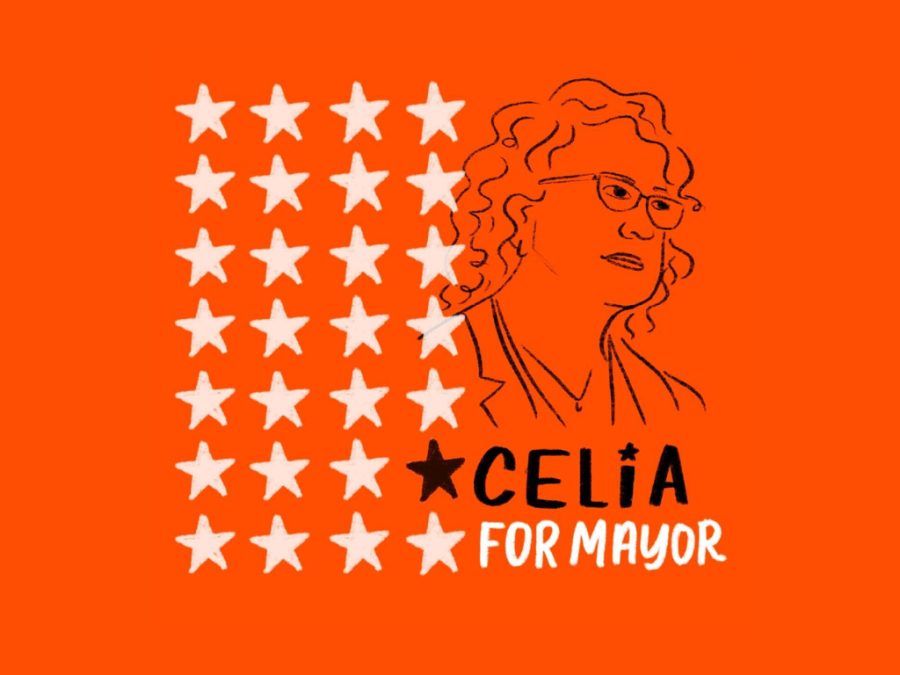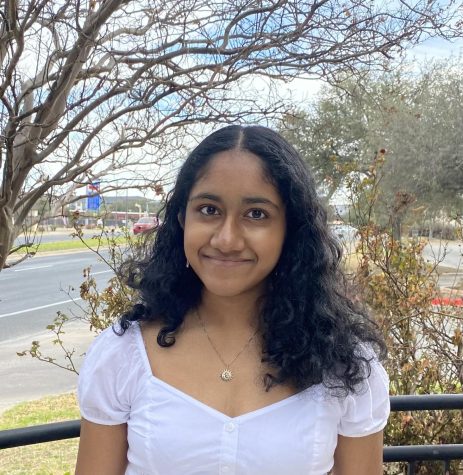Celia Israel Campaigns For Change
As evidenced by her campaign slogan, mayoral candidate Celia Israel seeks to be “A mayor for all of Austin.” Imperative to this pursuit is inclusion, which Israel hopes will yield space for all Austinites. “When I look back on my time as mayor, I want to be able to say that we did creative things with land — that we repurposed land and created housing for teachers and bus drivers and nurses,” Israel said.
November 1, 2022
On Jan. 11, mayoral candidate Celia Israel, who currently represents the 50th district in the Texas House of Representatives, announced her campaign. Israel employs a sense of urgency as she seeks to create change at the city level.
In evaluating pressing issues affecting Austin, Israel’s policy priorities include housing, mobility, and public safety. She places emphasis on the need to break down procedural barriers, facilitating quick and effective change that ensures actionable progress, especially concerning housing.
“My priority is to break down the bureaucratic red tape at the city, so that we can build more kinds of housing, for more kinds of people, in every part of the city,” Israel said. “I’m hoping that we can take some of these commercial slots and move quickly to rezone them so we can convert them into housing opportunities.”
Israel’s years of experience as a realtor in the Austin area have informed her comprehensive six-step housing plan, furthering her foundation when developing ideas for housing opportunities.
“When you’re a realtor, you also go through the emotional process of buying or selling a home with your clients, and it hurt my heart to see my clients lose deal after deal,” Israel said. “It helped to inform me about the difficulties around finding a place to live.”
Personal experience also helps to guide Israel’s goals for transportation. She plans to focus on facilitating transport that serves all Austinites, mitigating difficulties faced by a lack of options for mobility.
“I’m a big advocate for mass transportation. When I was little, my dad was a truck driver, and he would be gone for three or four days at a time. My mom never had her driver’s license and I grew up in El Paso. So for us, getting on the bus was a way of life. It was freedom. It was fun. It was exciting,” Israel said. “Austin is the 11th largest city in the country, but our transit systems are still stuck in the past. It’s important that we create systems so that more people can say yes to transit as an option for how they get around and take care of their [families].”
When pivoting her focus to community safety, Israel pulls from professional experience to inform her outlook. She emphasizes the necessity of creating systems for oversight and ensuring transparency.
“One police officer with a temper or mental health problems, with stress or anger issues, whatever you want to call it — if that police officer doesn’t address their issues, they do harm to the profession, as well harm to the relationship between those that they are pledged to serve,” Israel said. “Years ago, [former] mayor [Gus] Garcia appointed me to the police monitor board. The police monitor was a place where if someone had a complaint [an interaction] with the police, they could lodge a complaint with the police monitor, and [the police monitor board] could look into the behavior of that police officer. In order to build trust in the community, we need that strong oversight component.”
When speaking on the change she can bring to the Austin community, Israel hopes to hasten progress in an effort to attain equity. This focus is especially crucial when considering housing disparity within Austin.
“I would just move with more urgency. I know that the current mayor and council have been doing a lot of work around the issues of housing and affordability, but I believe that we have to move with urgency,” Israel said. “It will be a real sign of a great American city that we have built equity into this city and by equity. I mean, you can live in the heart of the city and work in the heart of the city. For me, that’s an indicator of a good city and progress and I hope that I can be a part of that progress.”
Speaking on her identity as an LGBTQA+ Latina, Israel views her identity as an asset. If elected, Israel would be the first Latina and outwardly queer mayor of Austin.
“Austin is a welcoming and big-hearted city, and we value diversity. I think that [Austin] would appreciate that I bring a different voice and that diversity matters,” Israel said. “I’m a different kind of cat is usually how I describe myself, and if that difference gets people’s attention, and engages them in local politics, then that’s a good thing.”
Thinking of the ongoing election, Israel believes a factor imperative to progress is youth and their participation in government and representative systems. Civic duty nurtures a collective community, ensuring the satisfaction of all citizens, and Israel views youth as crucial stakeholders in government.
“The most beautiful thing about this country is that this is our government. Government is us. And if we don’t own it in every possible way, getting to know the candidates, voting, and supporting good people, it’s a lost opportunity,” Israel said. “But if we think of it as an oak tree, Why are you planting the tree if you’re not going to see the benefits of that tree? Because someday that tree is going to provide shade and will be a mature asset [that] will help the environment. It’s important that we plant seeds now, so that years from now, we will have a better quality of life. And young people have an important role to play in that.”
More information about Israel and her campaign can be found on her website.



